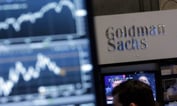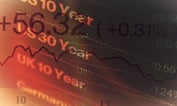Charles Schwab says it is rolling out target-date funds for retirement plans with expenses of under 0.10%, which could give it competitive edge against larger rivals, like Fidelity and Vanguard. Analysts say it’s likely that this will cause other firms to lower their fees.
The funds, called Schwab Target Index Funds, are constructed with ETFs.
The company’s new products “are the lowest in terms of basis points for expenses within the retirement plan industry at .08% and have no investment minimums,” said Jake Gilliam, senior multi-asset class portfolio strategist at Charles Schwab Investment Management, in an interview. “They have not been available with these features to small and large plans until now.”
(The same funds have a 0.13% fee and minimum investments start at $100 for investors outside of retirement plans.)
Schwab uses its lowest-cost ETFs to build the new products, he said. “We are a top-five ETF provider with $50 billion in assets … and have been selling target-date funds since 2002 with $15 billion in assets.”
According to Gilliam, “Schwab has a long history of being disruptive in bringing low-cost products to individual investors for the past 40 years, such as the commission-free ETF trading we launched in 2009, as well as low-cost ETFs and now mutual funds. This continues the tradition of disruptive pricing and brings change to individual investors and retirement plan participants.”








 August 25, 2016 at 10:20 AM
August 25, 2016 at 10:20 AM









